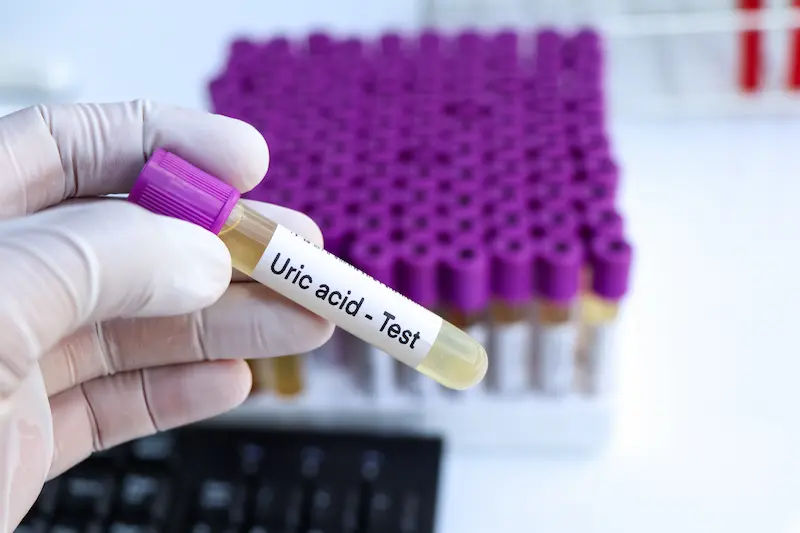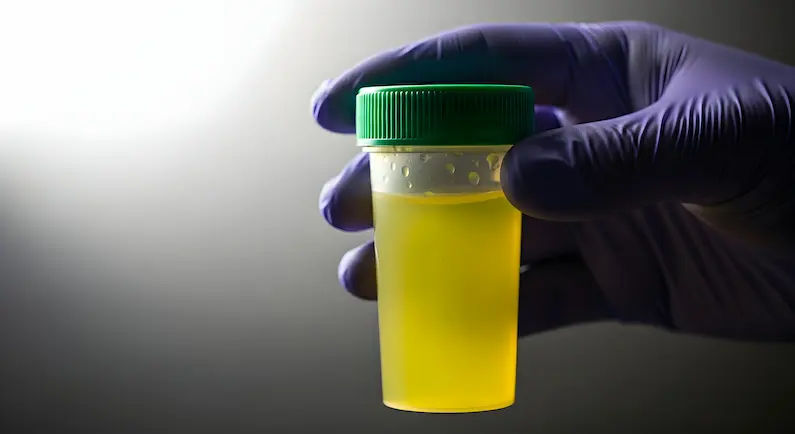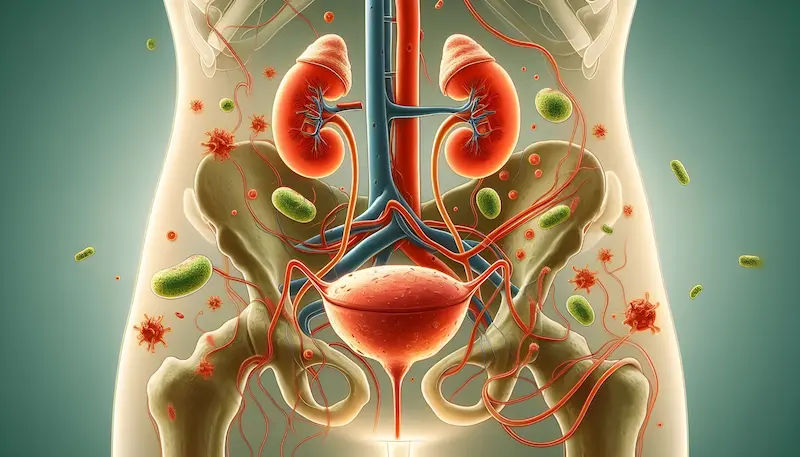Do Signs of Urinary Tract Infection
Learn to recognise the key signs of a urinary tract infection (UTI) early for prompt treatment and effective prevention.

Written by Dr. Dhankecha Mayank Dineshbhai
Reviewed by Dr. J T Hema Pratima MBBS, Fellowship in Diabetes Mellitus
Last updated on 13th Jan, 2026

Introduction
That sudden, relentless urge to run to the bathroom, followed by a sharp, burning sensation, if you’ve experienced it, you know how disruptive a urinary tract infection (UTI) can be. UTIs are one of the most common bacterial infections, affecting millions of people every year, particularly women. But the signs of a UTI can vary, and sometimes they’re subtle or mistaken for other conditions. Recognising the symptoms early is crucial for getting prompt treatment and preventing a simple bladder infection from turning into a more serious kidney infection. This article will guide you through the key signs of a urinary tract infection, from the most common symptoms like burning and urgency to the more severe indicators that demand immediate medical attention. We’ll also cover how symptoms can differ for men, older adults, and children, and what steps you can take for prevention and treatment. Knowing what to look for is your first line of defence.
What Exactly is a Urinary Tract Infection (UTI)?
A urinary tract infection (UTI) is an infection in any part of your urinary system, your kidneys, ureters, bladder, and urethra. Most infections involve the lower urinary tract, which includes the bladder (a condition called cystitis) and the urethra (urethritis). These infections occur when bacteria, most commonly Escherichia coli (E. coli) from the digestive tract, enter the urethra and begin to multiply in the bladder. The urinary system is designed to keep out such microscopic invaders, but sometimes these defences fail, allowing bacteria to take hold and grow into a full-blown infection. Understanding the location of the infection is key, as it directly influences the symptoms of a UTI you experience. While often uncomfortable, most UTIs are easily treatable with antibiotics. However, ignoring them can lead to serious complications.
The Urinary System: A Quick Overview
Think of your urinary system as your body's drainage system for removing wastes and extra water. The kidneys filter blood to create urine, the ureters are tubes that carry urine from the kidneys to the bladder, the bladder stores the urine, and the urethra is the tube that carries urine from the bladder out of the body. A UTI typically starts at the bottom (the urethra) and moves upward. This is why the initial signs of a UTI often involve the act of urination itself.
The 7 Most Common Signs of a UTI (Lower Tract)
When bacteria infect the bladder or urethra, the symptoms are primarily related to urination and pelvic discomfort. These are the classic signs that most people associate with a UTI.
1. A Burning Sensation When You Urinate (Dysuria)
This is arguably the most hallmark sign of a UTI. The medical term for this is dysuria. It feels like a stinging, burning, or itching sensation as urine passes through the inflamed urethra. It's often the first and most unmistakable clue that something is wrong.
2. A Frequent and Overwhelming Urge to Urinate
You may feel a constant, intense need to urinate, even if you've just emptied your bladder. This urgency is caused by
irritation and inflammation of the bladder wall, which sends false signals to your brain that your bladder is full.
3. Passing Only Small Amounts of Urine
Despite the frequent and urgent need to go, you may only pass a small trickle of urine each time. This is because the irritation is causing the urge, not an actual full bladder.
4. Cloudy, Dark, or Strong-Smelling Urine
Healthy urine is typically clear and pale yellow. A UTI can cause urine to appear cloudy or dark amber. It may also develop a strong, unpleasant, or even ammonia-like odour due to the presence of bacteria and white blood cells fighting the infection.
5. Pelvic Pain or Pressure
Women often experience a feeling of pressure, cramping, or pain in the lower abdomen or pelvic region, centered around the pubic bone. This is due to inflammation and swelling of the bladder.
6. Blood in the Urine (Haematuria)
The infection can cause minor bleeding in the bladder lining, leading to blood in the urine (haematuria). The urine may look pink, red, or cola-coloured. While alarming, it's a common symptom of a robust inflammatory response.
7. A Feeling of Incomplete Bladder Emptying
Even after urinating, you might feel like your bladder isn't completely empty. This sensation is another result of the bladder irritation caused by the infection.
Consult a Urologist for the best advice
When a UTI Gets Serious: Signs of a Kidney Infection (Upper Tract)
If a bladder infection is left untreated, the bacteria can travel up the ureters to one or both kidneys. A kidney infection (pyelonephritis) is a much more serious condition that can lead to permanent kidney damage or a life-threatening bloodstream infection. It's vital to recognise these escalated symptoms.
Symptoms of Pyelonephritis
In addition to the lower tract symptoms, a kidney infection will cause:
- High fever (above 101°F or 38.3°C) and chills
- Pain in the back, side (flank), or groin. This pain is typically a dull ache, distinct from muscular back pain.
- Nausea and vomiting
- General malaise, fatigue, and confusion (especially in older adults)
If you experience any symptoms of a kidney infection, especially fever with back pain, it is a medical emergency. You should seek immediate care. For persistent lower tract UTI symptoms, you can consult a doctor online with Apollo24|7 for a prompt evaluation and treatment plan.
Don't Miss the Signs: UTI Symptoms in Specific Groups
UTIs don't always present with classic symptoms. In some populations, the signs can be atypical or harder to detect.
UTI Symptoms in Men
While less common, men can get UTIs. Their symptoms often include the classic burning and urgency, but may also involve rectal pain, pain in the penis, and a constant feeling of fullness in the rectum.
UTI Symptoms in Older Adults
In the elderly, especially those with dementia, classic UTI symptoms may be absent. Instead, look for non-specific signs like:
- Sudden confusion or delirium (often the primary sign)
- Agitation or hallucinations
- Dizziness and falls
- Loss of appetite
- General weakness
UTI Symptoms in Children
Young children may not be able to describe what they're feeling. Be alert for:
- Unexplained fever
- Irritability and fussiness
- Loss of appetite
- Bedwetting or daytime accidents in a potty-trained child
- Vomiting and diarrhoea
What Causes a UTI? Understanding the Risk Factors
The primary cause of most UTIs is the bacterium E. coli, which naturally lives in the intestines. Risk factors that make it easier for bacteria to enter the urinary tract include:
- Female Anatomy: Women have a shorter urethra than men, meaning bacteria have a shorter distance to travel to the
bladder. - Sexual Activity: Can introduce bacteria into the urethra.
- Certain Types of Birth Control: Diaphragms and spermicidal agents can increase risk.
- Menopause: Declining estrogen causes changes in the urinary tract that increase vulnerability.
- Urinary Tract Blockages: Kidney stones or an enlarged prostate (in men) can trap urine in the bladder.
- A Suppressed Immune System: Diabetes and other conditions impair the body's ability to fight infections.
When You Should Definitely See a Doctor
It's important to consult a healthcare professional if:
- Your symptoms are severe or painful.
- Your symptoms don't improve within 24 to 48 hours.
- You have symptoms of a kidney infection (fever, back pain, nausea).
- You have recurrent UTIs.
- You are pregnant, as UTIs can pose risks to the pregnancy.
- You have a weakened immune system or other underlying health conditions.
If your UTI symptoms persist beyond a day or two, or if you're experiencing significant discomfort, consult a doctor online with Apollo24|7 for further evaluation. They can prescribe antibiotics if necessary. For diagnosis, Apollo24|7 offers a convenient home collection for tests like a urinalysis and urine culture.
How Are UTIs Diagnosed and Treated?
Urinary tract infections (UTIs) are common, but timely diagnosis and treatment can prevent complications and discomfort.
Diagnostic Methods
A doctor will typically start by discussing your symptoms and medical history. Diagnosis is often confirmed with a urinalysis, which checks for white blood cells, red blood cells, and bacteria in a urine sample. Sometimes, a urine culture is done to identify the specific bacteria causing the infection and determine which antibiotic will be most effective.
Standard UTI Treatment Options
The mainstay of treatment for bacterial UTIs is a course of antibiotics. It's crucial to finish the entire prescription, even if you start feeling better. Your doctor may also prescribe phenazopyridine (Pyridium) for a day or two to relieve the burning pain. Drinking plenty of water helps flush bacteria from your system.
Get Your Health Assessed
Proactive Steps: How to Prevent Urinary Tract Infections
You can reduce your risk of developing UTIs by adopting simple habits:
- Drink plenty of fluids, especially water, to dilute your urine and flush out bacteria.
- Wipe from front to back after urinating and a bowel movement.
- Urinate soon after sexual intercourse to flush away any bacteria that may have been introduced.
- Avoid potentially irritating feminine products, like douches and powders.
- Consider changing your birth control method if you use a diaphragm or spermicide and get frequent UTIs.
- Drink cranberry juice? The evidence is mixed, but some studies suggest it may help prevent bacteria from adhering to
the urinary tract walls.
Conclusion
Recognising the signs of a urinary tract infection is the first and most critical step toward finding relief and safeguarding your health. While the burning, urgency, and pelvic discomfort of a bladder infection are highly unpleasant, they are usually straightforward to treat with timely medical care. The real danger lies in ignoring these symptoms, which can allow the infection to travel to your kidneys and become a much more serious health issue. Pay close attention to what your body is telling you, and be aware that symptoms can manifest differently depending on your age and sex. By understanding the causes and risk factors, you can also take proactive steps toward prevention. Remember, you don't have to suffer in silence. If you suspect you have a UTI, especially if you experience any signs of a kidney infection, seeking professional medical advice is not just about comfort; it's a necessity for your well-being. Take action today for a healthier tomorrow.
Consult a Urologist for the best advice
Consult a Urologist for the best advice

Dr Anupam Sharma
Urologist
18 Years • MBBS, MS(Gen Surgery), DNB (Urology)
Delhi
Apollo Hospitals Indraprastha, Delhi
(25+ Patients)
Dr. P. Banu Teja Reddy
Urologist
9 Years • "MCh Genitourinary Surgery, Narayana Medical College, A.P. (2020) DrNB Urology, National Board of Examinations (2021) MS General Surgery, Narayana Medical College, A.P. (2015) MBBS, KLE University, Karnataka (2011)"
Hyderabad
Apollo Hospitals Financial District, Hyderabad

Dr. Amvrin Chatterjee
Urologist
10 Years • MBBS, MS, DNB, MCh
Kolkata
Apollo Multispeciality Hospitals , Kolkata, Kolkata
Dr. Mohamad Ali
Urologist
1 Years • MBBS, MS General Surgery, M Ch Urology
Pune
Apollo Hospitals Pune, Pune

Dr Ved Bhaskar
Urologist
11 Years • MBBS, MS (Gen Surgery), MCh (Urology), Fellowship in Robotic Surgery
Lucknow
Apollomedics Super Speciality Hospital, Lucknow
Consult a Urologist for the best advice

Dr Anupam Sharma
Urologist
18 Years • MBBS, MS(Gen Surgery), DNB (Urology)
Delhi
Apollo Hospitals Indraprastha, Delhi
(25+ Patients)
Dr. P. Banu Teja Reddy
Urologist
9 Years • "MCh Genitourinary Surgery, Narayana Medical College, A.P. (2020) DrNB Urology, National Board of Examinations (2021) MS General Surgery, Narayana Medical College, A.P. (2015) MBBS, KLE University, Karnataka (2011)"
Hyderabad
Apollo Hospitals Financial District, Hyderabad

Dr. Amvrin Chatterjee
Urologist
10 Years • MBBS, MS, DNB, MCh
Kolkata
Apollo Multispeciality Hospitals , Kolkata, Kolkata
Dr. Mohamad Ali
Urologist
1 Years • MBBS, MS General Surgery, M Ch Urology
Pune
Apollo Hospitals Pune, Pune

Dr Ved Bhaskar
Urologist
11 Years • MBBS, MS (Gen Surgery), MCh (Urology), Fellowship in Robotic Surgery
Lucknow
Apollomedics Super Speciality Hospital, Lucknow
More articles from Urinary Tract Infections
Frequently Asked Questions
1. Can a UTI go away on its own?
While some mild UTIs might resolve without antibiotics, it's not common and is generally not recommended. Untreated UTIs can spread to the kidneys, causing a more severe infection. It's best to consult a doctor for a proper diagnosis and treatment.
2. What does UTI pain feel like in women?
For women, UTI pain is often described as a burning or stinging sensation during urination. It can also include a persistent feeling of pressure or cramping in the lower abdomen and pelvic area, just above the pubic bone.
3. What's the difference between a bladder infection and a UTI?
A UTI is a broad term for an infection anywhere in the urinary tract. A bladder infection (cystitis) is the most common type of UTI. When people say 'UTI,' they are usually referring to a bladder infection.
4. Are there any effective home remedies for UTI pain relief?
While antibiotics are needed to cure the infection, you can manage pain by drinking plenty of water to dilute urine (making it less painful to pass), using a heating pad on your abdomen, and avoiding caffeine, alcohol, and spicy foods that can irritate the bladder. These are for comfort only and do not replace medical treatment.
5. Why do I keep getting recurrent urinary tract infections?
Some people are simply more prone to UTIs due to their anatomy, genetics, or health conditions. Risk factors include frequent sexual activity, certain birth control methods, menopause, and underlying issues like kidney stones. If you have recurrent UTIs, talk to your doctor about long-term prevention strategies.






